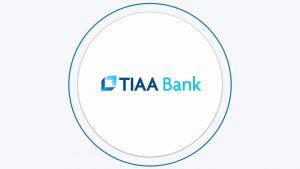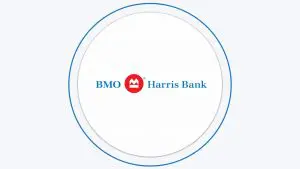Compare 5-Year vs. 1-Year CD Rates: Which Is Best?
As we can see, most banks and credit unions offer higher rates for 1-year CDs than 5-year ones. On the surface, it's in contrast to the logic of how CD work. Basically, investors expect to get a higher yield for the longer term since they require a longer commitment and offer less flexibility.
For most depositors, a minimum deposit of at least $1,000 is typically required by the majority of banks and credit unions, which is considered quite reasonable.
Financial Institution | 1-Year APY | 5-Year APY | Min Deposit |
|---|---|---|---|
4.00% | 4.15% | $0 | |
4.00% | 3.50% | $0 | |
4.10% | 4.00% | $1,500 | |
4.00% | 3.40% | $0 | |
3.65% | 3.20% | $1,000 | |
2.78% – 2.88% | 2.52% – 2.62% | $5,000 | |
4.50%
| 4.40% | $1,000 | |
4.20% | 4.25% | $1,000 | |
4.55% – 4.25% | N/A | $1,000 | |
4.00% | 3.80% | $2,500 | |
5.00%
| 3.95%
| $1,000
| |
4.340% | 2.00% | $2,500 | |
3.75% | 3.40% | $2,500 | |
3.90% | 3.40% | $0 | |
4.25% | 3.75% | $500 | |
4.35% | 3.80% | $25,000 | |
3.00% | 2.00% | $500 | |
2.75% (13 months) | 0.03% | $1,000 | |
3.00% | 2.00% | $1,000 | |
3.85% | 3.50% | $0 | |
4.25%
| N/A | $1,000 | |
N/A (11 months) | 1.50% | $250 | |
2.25% | 1.75% | $50 | |
4.65%
| 3.40% | $1,000
| |
4.25%
| N/A | $100,000 |
Top Offers From Our Partners
Compare 5-Year vs. 1-Year: How Much You'll Earn?
Compare 5-Year vs. 1-Year Early Withdrawal Fees
There is a significant difference in early withdrawal fee between banking and credit unions.
- For 1 year CD, you can the lowest penalty on State Bank of Texas (30 days of interest) and also on Ally Bank and Consumers credit unions (60 days of interest).
- On the other hand, American Express (270 days of interest), Discover bank, Synchrony bank, Marcus, and Bank Of America (6 month/ 180 days of interest) and Lending Club (100% of interest earned) offer some of the largest penalties if you withdraw your funds .
- When it comes to 5 year CD, you can find the lowest early withdrawal penalty with Consumers credit union (120 days of interest) and Ally (150 days of interest). The highest penalties incurred by American express (540 days), Lending Club (100% of interest earned) and Discover Bank (18 months of interest).
Although brokered CDs do not carry a penalty, the deposited amount may incur fees and other costs based on the specific amount.
Financial Institution | 1-Year CD | 5-Year CD |
|---|---|---|
180 days of interest
| 365 days of interest
| |
3 months interest
| 6 months interest
| |
180 days simple interest
| 365 days simple interest
| |
6 months interest | 18 months interest | |
365 days / 30% of dividends (The lower) | 365 days / 30% of dividends (The lower) | |
90 days of dividends | 365 days of dividends | |
Fees, based on the amount
| Fees, based on the amount | |
Fees, based on the amount | Fees, based on the amount | |
Fees, based on the amount | N/A | |
90 days of interest | 180 days of interest | |
25% of total interest earned | 25% of total interest earned | |
90 days of interest | 180 days of interest | |
100% of interest earned | 100% of interest earned | |
60 days of interest
| 150 days of interest
| |
180 days interest
| 180 days interest
| |
180 days of interest
| 270 days of interest
| |
90 days of interest | 180 days of interest | |
180 days of interest | 180 days of interest | |
180 days interest
| 365 days interest
| |
270 days interest
| 540 days interest
| |
90 days of interest
| N/A | |
60 days of interest
| 120 days of interest
| |
90 days of dividends
| 180 days of dividends
| |
30 days of interest
| N/A |
Should I Consider 1 Year or 5 Year CD?
Choosing a 5-year CD over a 1-year CD can make sense in certain situations, depending on your investment goals and financial situation. Here are some reasons why you may want to consider a 5-year CD:
Lock High Interest Rates: Generally, if you expect the interest rate will decrease and want to lock your money in a higher interest, 5-year CDs may be a good idea. This means you can earn more money over the long-term, which can be beneficial if you're looking to grow your savings.
Peace Of Mind: If want to “set and forget” you CD for the long run and in case you have a long-term savings goal, such as saving for a down payment on a house or a child's college education, a 5-year CD may be a good option.
However, there are also some reasons why you may want to choose a 1-year CD instead of a 5-year CD. For example:
Liquidity: If you need access to your money before the end of the CD term, a 1-year CD may be a better option. While you will still face an early withdrawal penalty, the penalty will be lower than for a 5-year CD.
Interest Rate Suppose To Increase: If interest rates rise during the term of your CD, you may miss out on the opportunity to earn higher interest rates. By choosing a 1-year CD, you have the flexibility to re-invest your money in a higher-rate CD when your term ends.
In summary, choosing a 5-year CD over a 1-year CD can make sense if you're looking to lock higher interest rates and need a peace of mind for long-term savings goals. However, if you prioritize liquidity and flexibility, a 1-year CD may be a better option for you. It's important to weigh the pros and cons of each option and consider your personal financial situation before making a decision.
Top Savings Accounts From Our Partners
Quontic High Yield Savings
- 3.85% APY on savings
- Interest is compounded daily
- No Monthly Service Fees
CIT Savings Connect
- Up to 4.35% APY on savings
- No monthly service fees.
- Zelle, Samsung & Apple Pay
Advertiser Disclosure
The product offers that appear on this site are from companies from which this website receives compensation.
























